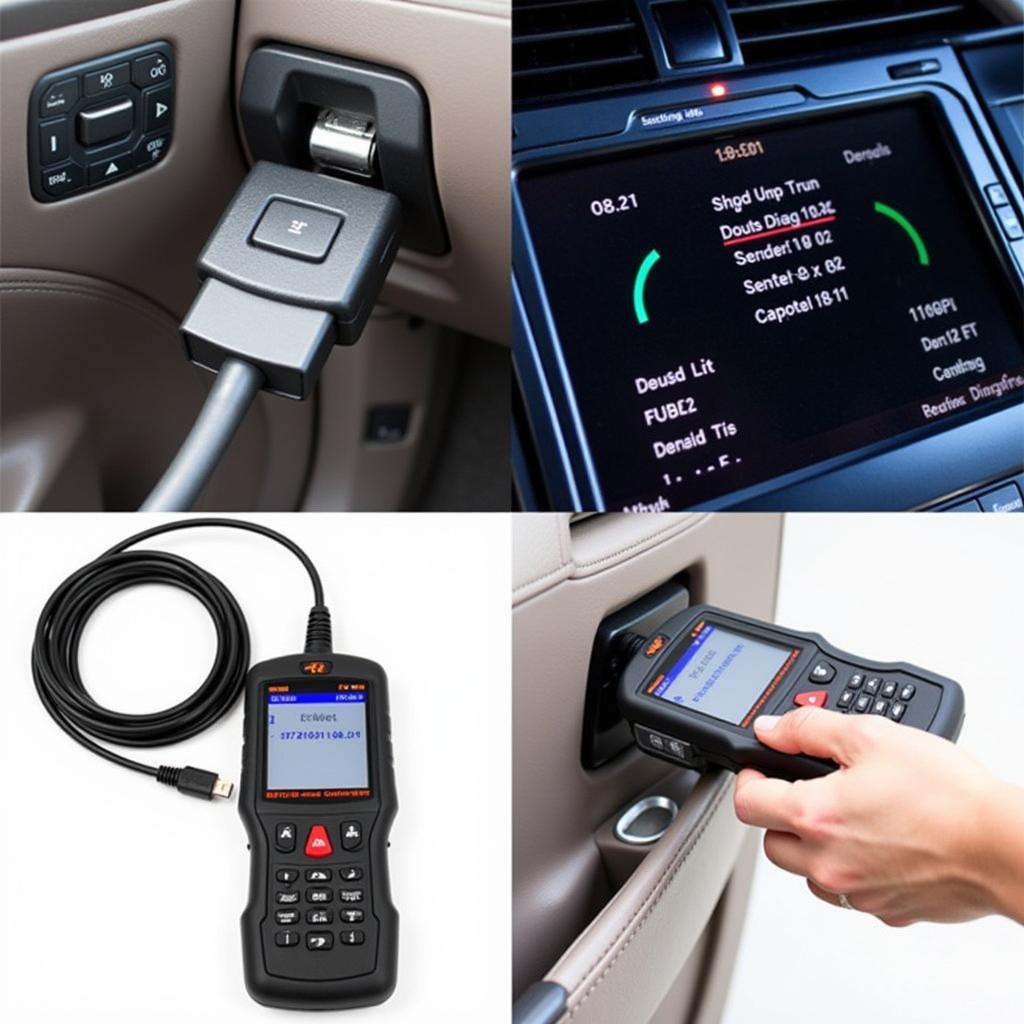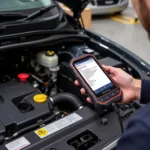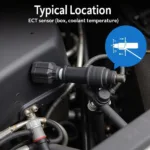When it comes to car maintenance, understanding your vehicle’s diagnostic codes can feel like deciphering a foreign language. One message that often leaves car owners puzzled is “OBD2 history says pass.” This seemingly straightforward message can be interpreted in several ways, leading to confusion and uncertainty about the health of your vehicle. This comprehensive guide will delve into the meaning of “OBD2 history says pass,” exploring its implications and providing clarity on your car’s diagnostic results.
Deciphering “OBD2 History Says Pass”
The message “OBD2 history says pass” essentially indicates that your vehicle’s onboard diagnostic system, also known as OBD2, has not detected any current issues or stored fault codes. This means that all the monitored systems within your vehicle are functioning within their normal parameters, and there are no active warning lights on your dashboard.
However, it’s crucial to understand that “OBD2 history says pass” doesn’t necessarily guarantee a completely clean bill of health for your car. Here’s why:
- Historical Data: The OBD2 system stores data about your vehicle’s performance over time, including past fault codes that may have been triggered and then resolved. While a “pass” indicates no current issues, there might be historical codes stored in the system’s memory.
- Intermittent Issues: Some car problems are intermittent, meaning they occur sporadically and might not be present at the time of the scan. The OBD2 system might not log a code for these temporary glitches.
- Non-OBD2 Monitored Systems: Not all vehicle systems are monitored by the OBD2 system. Issues with components like the body control module or certain sensors might not trigger an OBD2 code.
Why is My Check Engine Light On If OBD2 History Says Pass?
A common point of confusion arises when the check engine light is illuminated despite the OBD2 scan showing a “pass.” This discrepancy can occur due to several reasons:
- Pending Codes: A pending code indicates a potential issue that the OBD2 system has detected but hasn’t yet confirmed as a persistent problem. The check engine light might illuminate as a warning until the system gathers enough data to confirm or dismiss the issue.
- Loose Gas Cap: Believe it or not, a loosely fastened gas cap is one of the most frequent culprits behind an illuminated check engine light. This seemingly minor issue can disrupt the vehicle’s evaporative emissions system, triggering a code and turning on the warning light.
- Faulty Oxygen Sensor: A malfunctioning oxygen sensor can disrupt the air-fuel mixture in your engine, potentially leading to reduced fuel efficiency and increased emissions. While the OBD2 system might not always register this as a hard fault, it can still trigger the check engine light.
Understanding the Importance of OBD2 History
While a “pass” message offers reassurance, delving into the OBD2 history can provide valuable insights into your car’s overall health and potential areas of concern.
Here’s why checking your car’s OBD2 history is essential:
- Preventive Maintenance: Identifying recurring or previously resolved issues can help you address minor problems before they escalate into major repairs.
- Used Car Purchases: Inspecting the OBD2 history of a used car can reveal hidden problems or potential red flags, allowing you to make informed purchasing decisions.
- Troubleshooting: If you’re experiencing intermittent car troubles, accessing the OBD2 history can provide clues to help diagnose the root cause.
Beyond “Pass” or “Fail”: Getting the Most Out of Your OBD2 Scanner
Modern OBD2 scanners offer more than just a simple “pass” or “fail” message. They provide a wealth of data that can empower you to understand your car’s performance better. Here’s how to maximize the use of your obd2 bluetooth car diagnostic interface scanner:
- Read and Clear Codes: Identify and clear both current and historic fault codes to gain a comprehensive understanding of your vehicle’s diagnostic status.
- View Live Data: Monitor real-time sensor readings, such as engine RPM, coolant temperature, and oxygen sensor voltage, to get insights into your car’s performance.
- Perform Emissions Tests: Check your vehicle’s readiness for emissions testing, ensuring compliance with environmental regulations.
Conclusion
While encountering the message “OBD2 history says pass” can be reassuring, it’s essential to remember that it doesn’t necessarily guarantee a completely problem-free vehicle. Understanding the nuances of OBD2 diagnostics, exploring your car’s history, and utilizing the full capabilities of your OBD2 scanner can provide invaluable insights into your vehicle’s health, enabling you to make informed decisions about maintenance and repairs.
Remember, regular checks and proactive maintenance are key to ensuring your vehicle’s longevity and your safety on the road. If you’re ever unsure about your car’s diagnostic results or need assistance interpreting OBD2 codes, don’t hesitate to consult a qualified mechanic for professional guidance.
FAQs
1. Can I clear my OBD2 history?
Yes, you can clear your OBD2 history using an OBD2 scanner. However, it’s important to note that clearing the history doesn’t erase the underlying issues.
2. How often should I check my OBD2 system?
It’s generally recommended to check your OBD2 system at least once a year or whenever your check engine light illuminates.
3. Does “OBD2 history says pass” mean my car will pass an emissions test?
Not necessarily. While a “pass” message is a good sign, it’s best to perform a dedicated emissions readiness check using your OBD2 scanner or consult a certified emissions testing facility.
4. What should I do if my OBD2 scanner shows a code I don’t understand?
You can refer to your vehicle’s owner’s manual or consult online resources like OBDFree for code definitions and troubleshooting tips. For complex issues, seeking advice from a qualified mechanic is always recommended.
5. Can I use any OBD2 scanner to read my car’s history?
While basic OBD2 scanners can read and clear codes, more advanced models might be required to access detailed historical data.
Need further assistance? Contact our dedicated support team via WhatsApp: +1(641)206-8880 or Email: [email protected]. We’re available 24/7 to help with all your OBD2 and car diagnostic needs.
Explore more helpful resources on our website:


